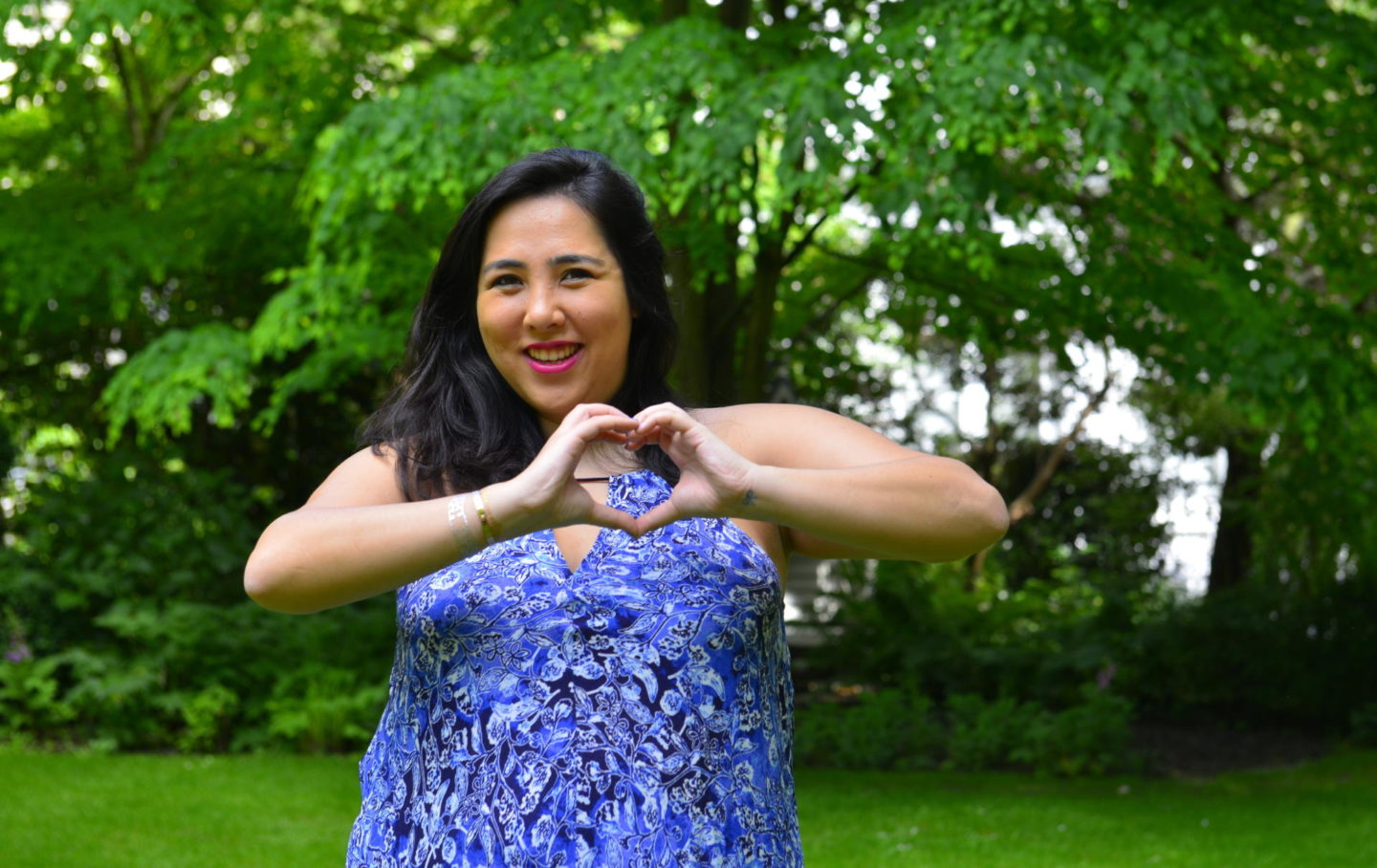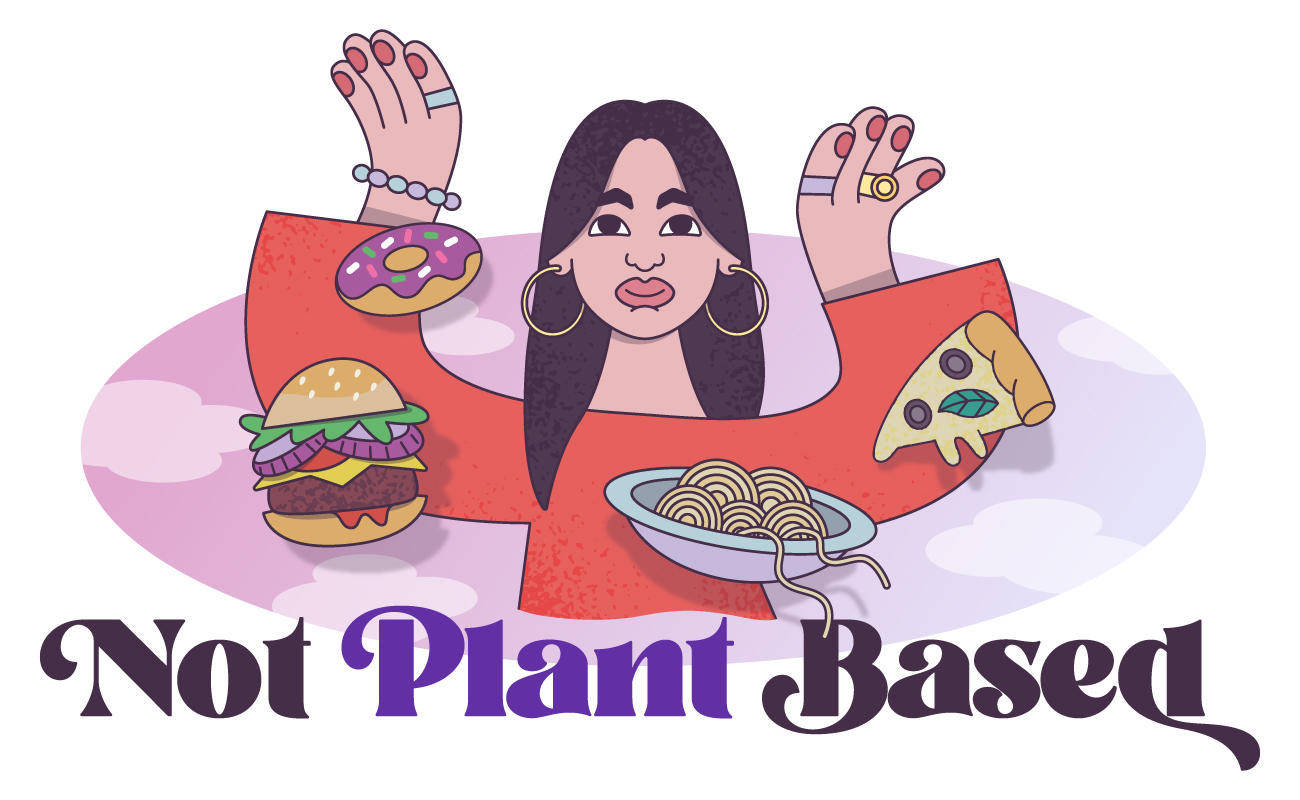
I first came across Michelle Elman on the All Woman Project’s Instagram page. I was asked to film a short clip of myself describing how I’d like to encourage women and sharing my story with an eating disorder, along with an army of other strong women. I couldn’t help but feel slightly embarrassed by my own crappy attempt after Michelle’s followed, where she stood fiercely in a bikini, showing the world her scars and in turn helping others to embrace a positive body image like she has been able to.
This isn’t the first time an image of Michelle in her bikini has got the internet talking and for all the right reasons, either. As I Google her, countless articles from Buzzfeed, Cosmo and the Daily Mail pop up in awe of this woman questioning: What is beauty? In July 2015, Michelle Elman posted a picture of herself on Instagram. According to her website, in the photo: “She is wearing a bikini, but unlike so many of the bodies on Instagram, hers is not thin. And in the photo, you can see deep scars running across her stomach. At twenty-one years old, it was her first time wearing a bikini. The post went viral.”
Michelle is a body confidence coach, author and the creator of Scarred Not Scared, a campaign to get people talking about their scars, because growing up she never could. Michelle has had 15 surgeries, a brain tumour, a punctured intestine, an obstructed bowel, a cyst in my brain and a condition called Hydrocephalus and yet all she could worry about were her scars.
Her new book Am I Ugly? follows Michelle’s journey through to embracing both her scars and her body, and she was wonderful enough to talk to me about this, along with why dieting isn’t the solution and how she found body positivity.
Without body positivity and the internet, do you think you would’ve been able to come to terms with your scars?
No. I strongly believe the only way conversations like body positivity and scar positivity are able to happen is due to the fact that we not only have the internet but we have social media as well. It was necessary for us to have a space where the media we consume wasn’t chosen by the same people. Social media gives us the opportunity to make our own decision about what we want to see. Personally, I didn’t have this option with my scars. The internet existed but no matter how much I searched and googled, I could never find the answers to my questions about my scars and I couldn’t find anyone with scars like mine. That is why I work to change it because it would have accelerated my own journey to see scars represented and know that body positivity was possible.
From a psychological POV, how can we all benefit from body positivity?
The more we hate our body, the more our inner critic and that inner voice we all have in our head, flourishes. It gives that voice grounds for abusing ourselves when in reality, our body hate is a result of our self-hate. With my background in Psychology and my experience working with people, I’ve found that most body insecurities are simply manifested internal thoughts. As an example, I used to have a client who was really insecure about her height. Realistically, you can’t change your height, especially because her insecurity was that she was too tall but the issue wasn’t actually her height, she hated standing out, in all aspects of life. Once she was OK with standing out, she became OK with her height.
What was your life like before your posts went viral? Has this helped you?
I was in the unique position to have already been body positive before the creation of my Instagram account, or indeed the moment I went viral. I personally would not have wanted to post that photo, if I myself was not comfortable with my body. I didn’t want my body positivity to come from external validation and so I wanted to be OK with me, regardless of what the response would be. Before going viral, I was already preparing to tell my story as I was already writing a memoir about my scars and surgeries. It will now be published next year in July 2018 and it is called “Am I Ugly?”
What would you say to people who don’t see the benefit of posing in a bikini?
You don’t have to wear a bikini. Body positivity has never been about forcing anyone into a bikini but the bikini has become a central issue because most have insecurities around it. Personally, I don’t care whether you wear a bikini but I do care if you miss out on pool parties or beach trips because of your insecurity.
In the body positive world, have you come across many people with eating disorders? Has this impacted how you think about them?
Yes, a good portion of the body positive community have eating disorders. I had been quite familiar with eating disorders because of my degree in Psychology so body positivity didn’t alter my perceptions.
Have you ever had an eating disorder?
No, I have had disordered eating in the past but not a full-blown eating disorder. My relationship with eating was largely affected by my hospitalisations were I was unable to eat for extended periods of time (between 6 weeks to 3 months).
Have your scars/negative body image made you want to alter how you eat in order to look differently?
I was a persistent dieter. My scars were the original cause of it because my 11th surgery created a massive fold at the bottom of my stomach which meant anytime I wore t-shirts, it looked like there was a roll of fat. I always thought diets would be the solution and this mentality was enforced by the teachers I was surrounded by. The last diet I went on was when I was 20, and whilst it was temporarily successful, it created such an unhealthy mentality around food and meant I craved food I never originally liked, simply because they were banned and I stopped socialising to reserve my calories from alcohol. It is not a way to live your life.
What is it like for you having PCOS?
My relationship with PCOS is a complicated one. My diagnosis was not straight forward or easy but it luckily coincided with my discovery of body positivity so I incorporated the bodily changes I was going through, into challenges in my body positive journey. The symptoms are so wide and varied for each person that has PCOS that I often move away from discussing specifics and particularly for me, it is hard to differentiate what it is due to PCOS and what is due to my vast array of other medical issues as I was also hospitalised around the time of my diagnosis.
There is a lot of discussion about weight gain in PCOS and I always found that hard to manage as in a sense, it always felt like exposing my diagnosis led to people’s acceptance of my existence in a fat body. This led to me discussing my PCOS less because I don’t feel I should have to justify my weight by sharing my medical record with others.
What can we expect from your book?
I actually talk a lot about my experiences with disordered eating which is something I don’t discuss on my Instagram page as it is too complex to dissect into a 300 word caption. My book has been the chance I wanted to explain my surgeries in depth and to explain the psychological effects on a child put into that situation. I believe my book also demonstrates a realistic journey of body positivity and shows how I got to where I am with small steps along the way. The problem with Instagram is that sometimes the short nature of the captions, implies that the journey was easy, simple and fast but it couldn’t have been further from that. People also see that the majority of us are young and assume it happened quickly, but as with most of us who run big accounts now, we started much younger than most. I, for example, started working on building my body confidence at 15 years old.
What would you say to anyone suffering with a lack of self esteem and self worth? Who hate how they look?
I would tell them that self esteem is a muscle they have to build. Everyone is capable of loving their body, no matter what they look like and you don’t need to change what you look like to be deserving of self-love. Being compassionate to yourself and stop the judgement is the best place to start. Everytime you are tempted to berate yourself in the head, replace that with something positive.
What would your last supper be?
Dumplings. The chinese side of me wins in the end!



